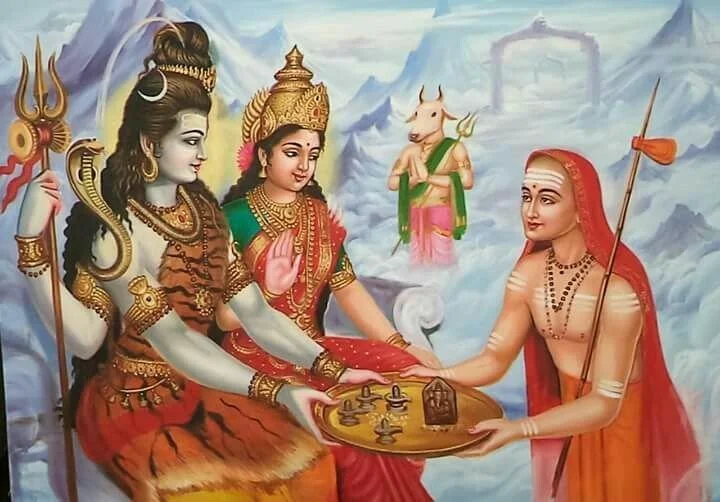What is Guru Purnima?
by Aadya Bommineni, Ardhana Praveen, and Shriya Shaji
Read more to learn about Guru Purnima, the festival dedicated to celebrating teachers, mentors and gurus who pass their knowledge for future generations.
Introduction
Our teachers, gurus, and professors are the ones who guide us in life, so what better way is there to honor them and their knowledge by dedicating a day to them? Guru Purnima is a special day in Hindu culture, as it’s the auspicious event celebrating all teachers and gurus, and when students receive blessings from them. It is celebrated around South Asia, with distinct religions having multiple unique stories and beliefs. Students can pay their respects to their teachers by giving offerings, like sweets, and taking their blessings. Read more to understand the deeper meaning of this day and appreciate the significance of it!
What is Guru Purnima?
Guru Purnima is a festival celebrated on the full-moon day falling between the month of June and July. “Guru Purnima” literally means the “Full Moon for the Guru,” or “Full Moon for the Remover of Ignorance.” Students express honor, respect and gratitude towards the teachers, mentors, seniors and elders who guide and enlighten.
Guru Purnima’s Origins
Guru Purnima honors sage Veda Vyasa, who compiled the Vedas and wrote the Mahabharata; both being foundational texts giving perspective on Hindu culture, literature, philosophy and history. Sage Vyasa is honored for his contributions to Hindu philosophy through his writing of important scriptures. Additionally, Lord Shiva is honored as the Adi Guru, the first teacher who imparted the science of yoga to the Saptarishis (Seven Sages). His lessons sharing yoga initiated the teacher-student tradition and relationship.
Cultural Significance
Guru Purnima celebrates the guru and the teacher-student relationship, a key principle of Hindu culture. The festival seeks to honor the teacher’s role of shaping future generations and society. Across India, pujas (religious rituals) are performed in addition to offering flowers, sweets and lighting diyas to the images of gurus and deities as a sign of gratitude and respect. Blessings are sought from teachers by touching the feet. Many families donate to temples and educational institutions giving back to their community while preserving their heritage.
Conclusion
So, once again, Guru Purnima is the day for celebrating teachers, by taking their blessings and giving them offerings. Its origins honor Lord Shiva and Sage Vyasa, for their teachings and creation of teacher-student relations. We hope you enjoyed this reading, and now go to our kahoot and quiz yourself!




